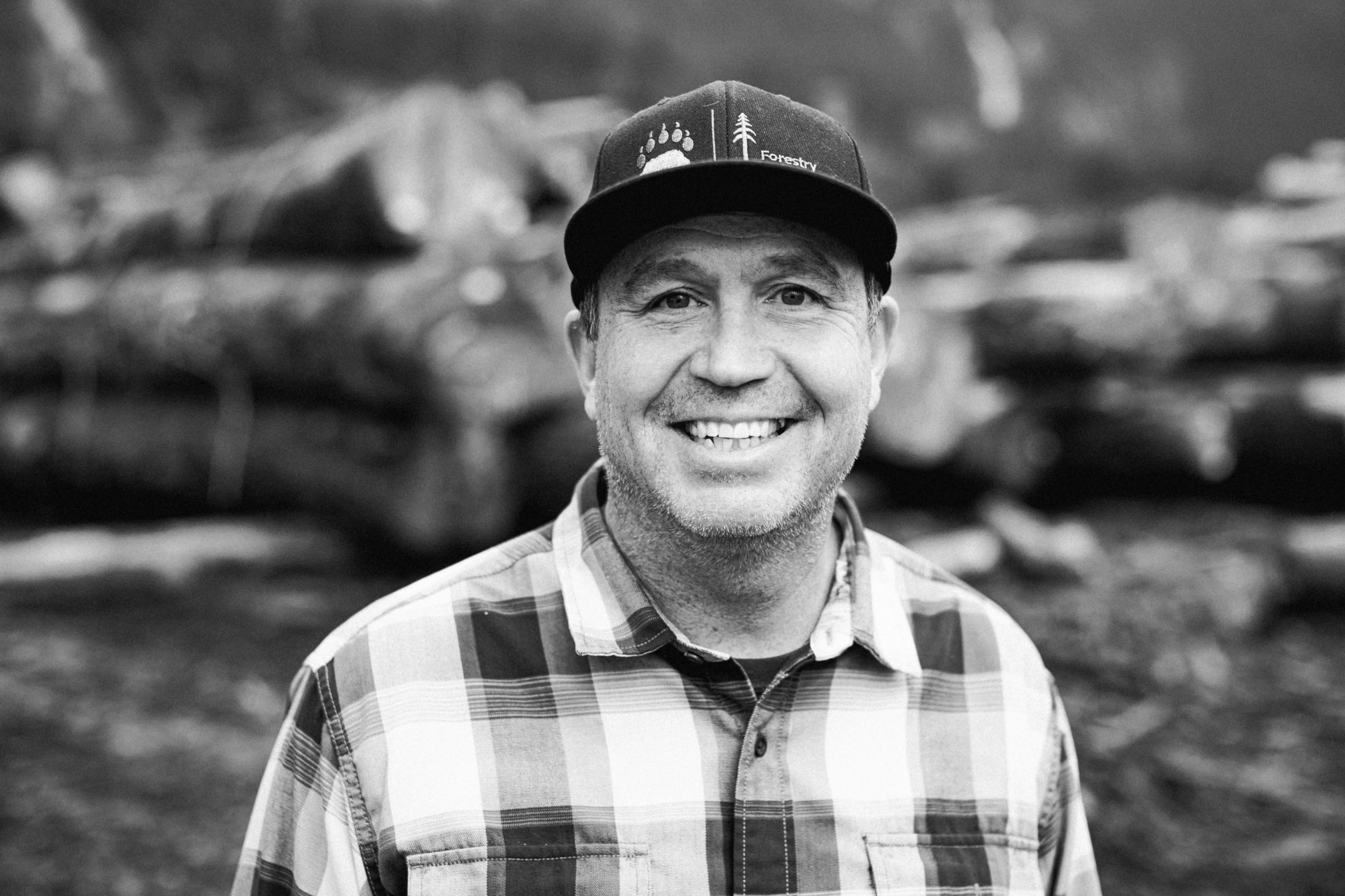
The inspiration for becoming a forester is vast and varied, but the incident that prompted Klay Tindall to pursue a career in the sector was truly unique.
He says, “I was born and raised in the prairies and got involved in snowboarding to the extent I moved to BC in 1993, to take full advantage of the sport.
“One day I went mountain biking with an acquaintance, and even though he was 10 years older than me his speed and strength were incredible. I asked how he got that way, and he replied, ‘I’m in forestry.’”
Now 50, with sons who are also pursuing careers in the sector, Tindall views that simple exchange as life changing. “I loved and spent so much time in the outdoors that I had been thinking of ways to be paid for it, and forestry was the answer. So, I vowed to get my foot in the door.”
Flash forward to 2023: as general manager of forestry operations at Lil’wat Forestry Ventures, Tindall oversees harvesting, engineering and silviculture on the Lil’wat Nations’ multiple tenures (the venture harvests 125,000 cubic metres annually in the Mount Currie region).
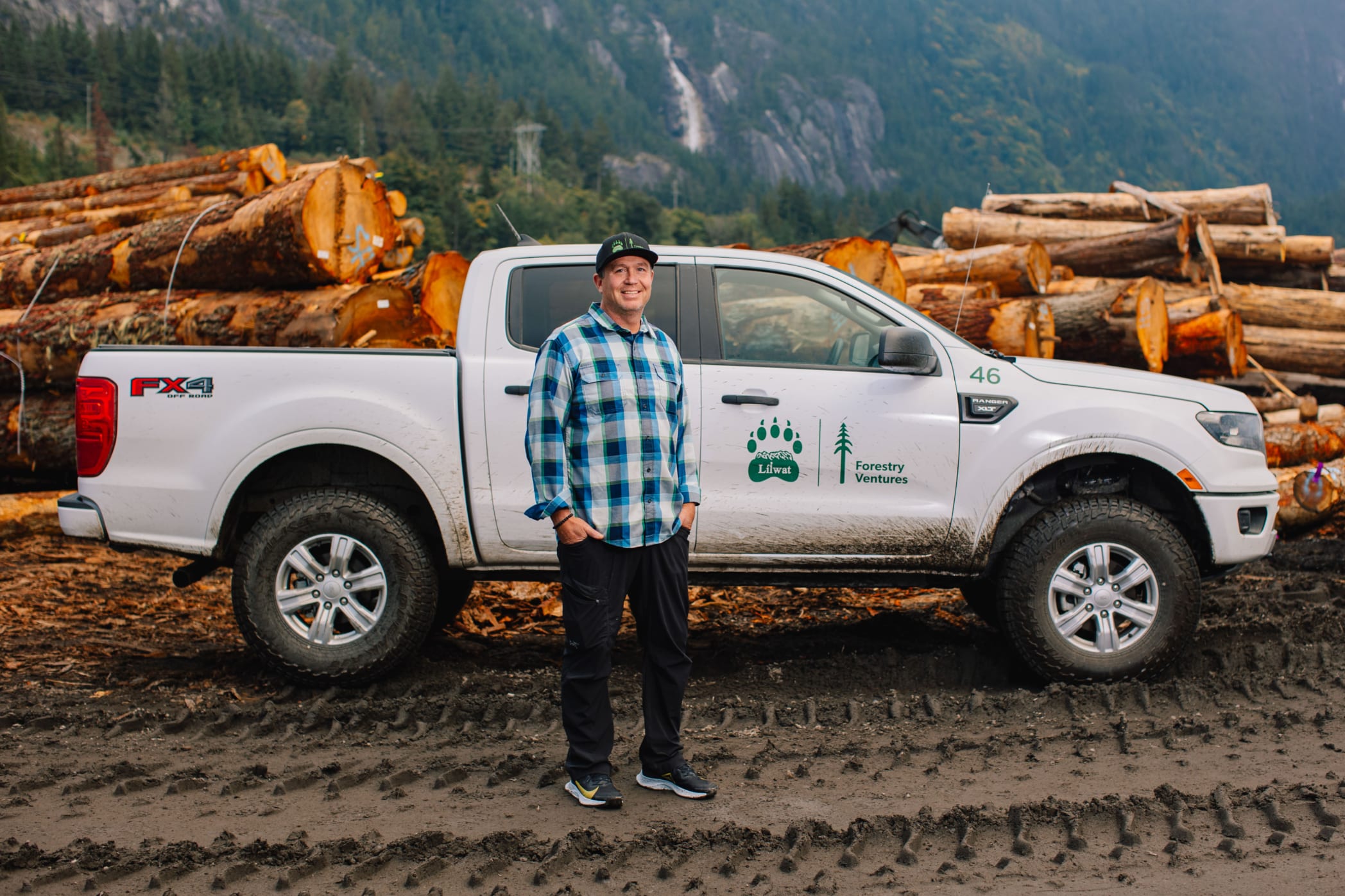
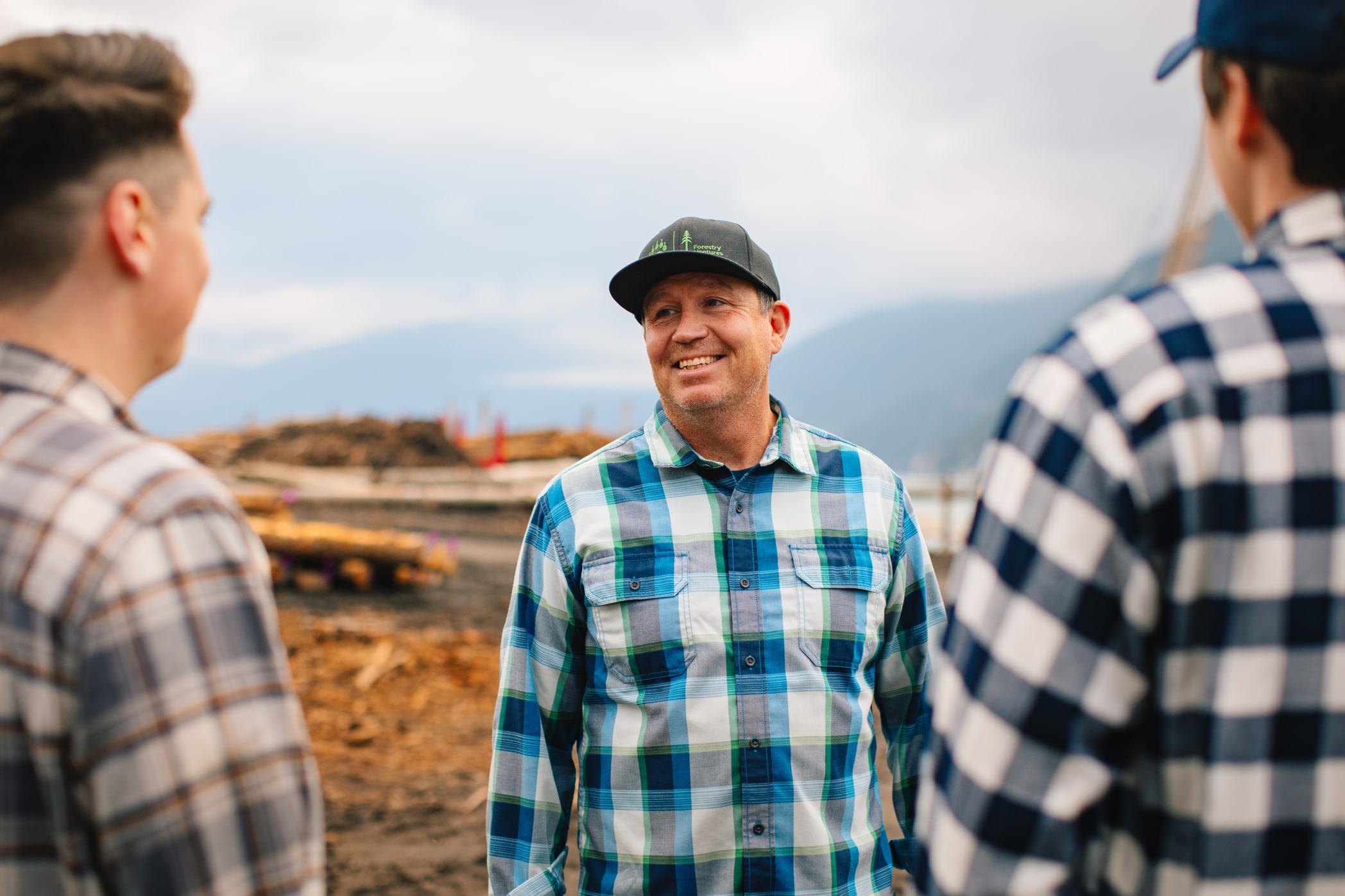
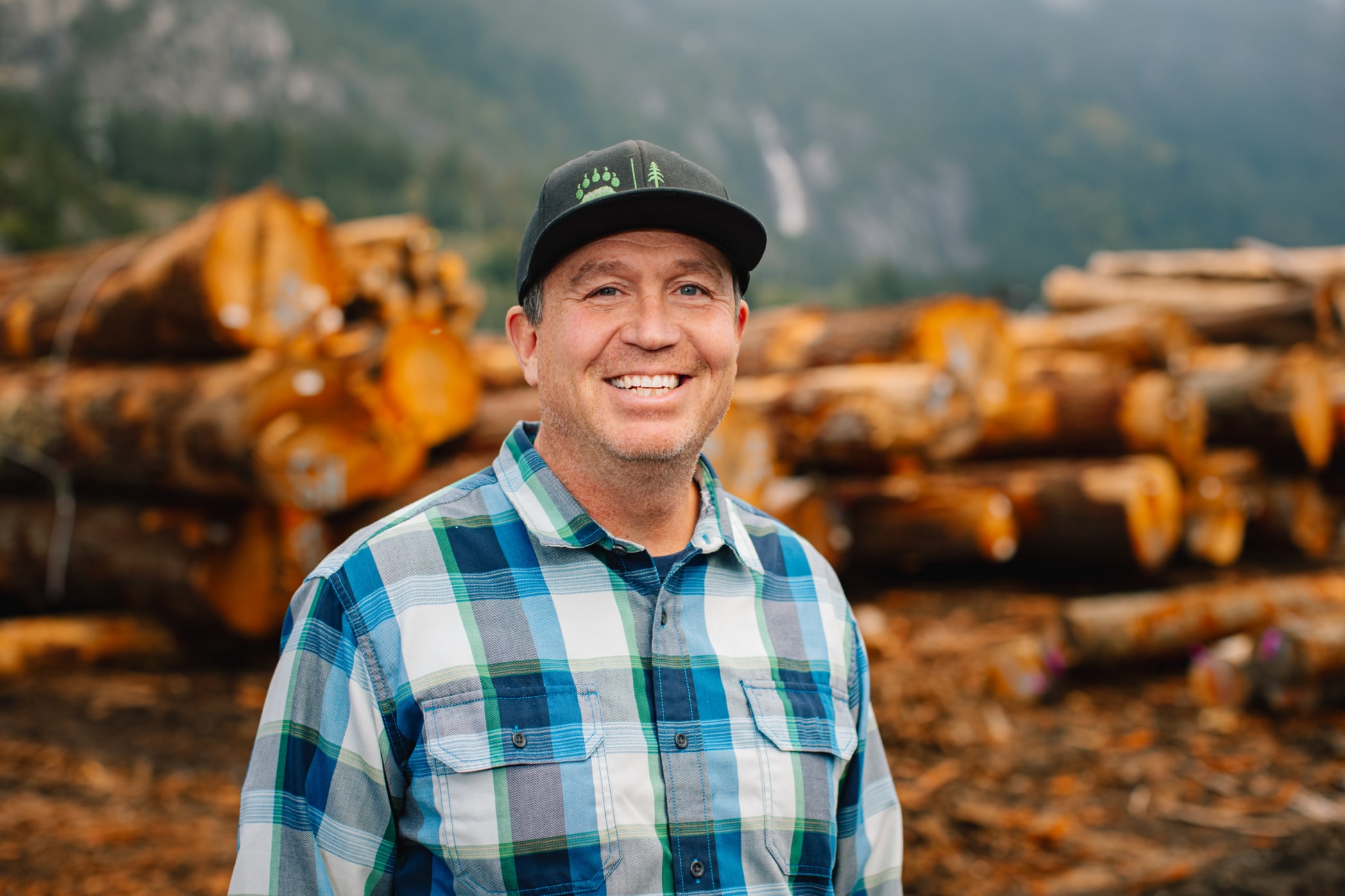
An important part of Tindall’s role is creating jobs in the community and developing employee skills, and he draws upon past experience as an instructor at Stillwater Consulting to create programs and teach forestry courses. “It’s deeply fulfilling to have learned enough to be able to give other people well-paying jobs,” he says. “And it’s meaningful at Lil’wat to have helped nurture a venture that contributes to the Lil’wat economy.”
While Tindall didn’t come from a logging family, he appreciated early on the importance of the industry. “My dad Glen was a carpenter, and during summer vacations he got me lots of jobs working with wood,” he says. “Seasonal jobs in the field continued after I moved to BC.”
But following his encounter with the mountain biking forester, Tindall shifted gears and found work tree planting in Quesnel. “I also wanted to get academic grounding, so I did a year of sciences at Capilano University and then was accepted into the University of BC’s forestry department,” he says.
Tindall was hired by an engineering firm in Nelson. “I did timber cruising and cut block layout and learned a ton,” he recalls.
Along the way he married and had three sons, Eli, Gage, and Darner, who influenced his career. “The majority of my work was in camp, and pretty soon I felt the disconnect from my wife and kids that so many foresters experience,” he says. “So, I hunted for a job that would allow me to come home every night. I wound up working for a consultancy in Golden and then as a silviculture supervisor for Tembec at TFL 14.”
Yet another career opportunity arose in the aftermath of the 2008 recession, when mills that had closed during the downturn reopened with a shortage of field staff. “Tembec was struggling to find people, so it approached Stillwater Consulting to coordinate training and in 2011, I was recommended as their first instructor,” he says.
Equally remarkable was how Tindall fell into the Lil-wat Nation’s orbit. “They posted a job ad for the role of GM at Lil’wat Forestry Ventures; I applied and was hired,” he says.
By this time Tindall had become the classic forester, eager to experience as many aspects of the sector as possible: “I had said yes to a lot of jobs that others turned down because the pay was the same but the responsibilities greater, and as a result I had gained a lot of experience—to the point where although making harvesting a success for the Nation was challenging, I was attracted to the potential.” Today he attributes the venture’s success to great administrative staff and “boots on the ground.”
The only ironic aspect of Tindall’s career is that today he finds himself toiling mainly in the office instead of in the field he loves so much. “So, my ultimate goal is to train the right people to eventually take over from me, that way I can spend more time with my wife and sons outdoors,” he says only half-jokingly.
But given that Eli, 23, is employed at FraserWood Industries, Gage, 22, has cut his teeth as a logger, and Darner, 15, has built trails, family recreation opportunities may be limited. Tindall shrugs good-naturedly. “That’s okay, because I see a bright future for our industry, one in which hopefully more and more First Nations will be taking leadership roles,” he says.
He adds, “My sons are motivated the way I am and way ahead of where I was at their age. They have great careers ahead of them.”






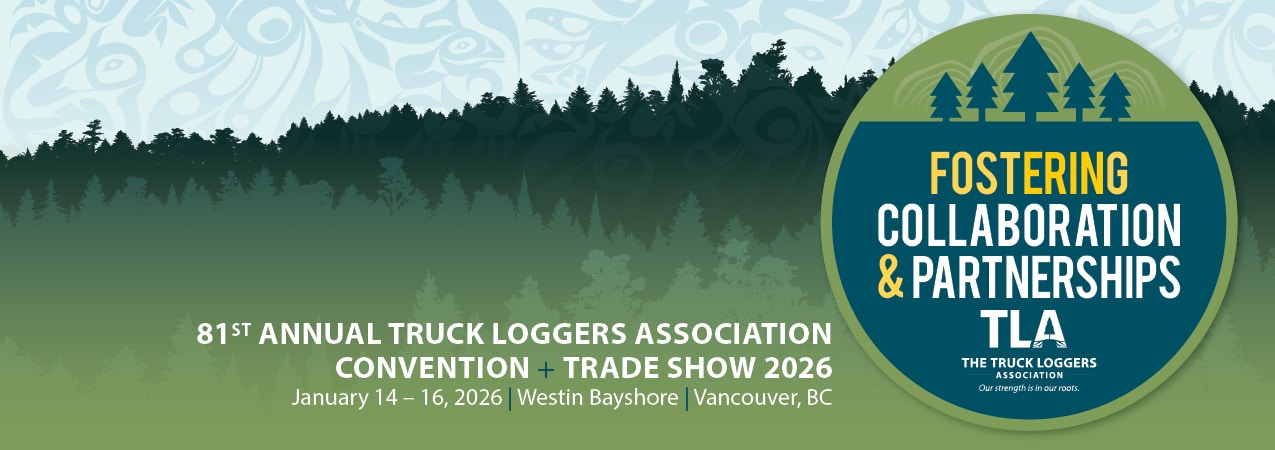
Get Social